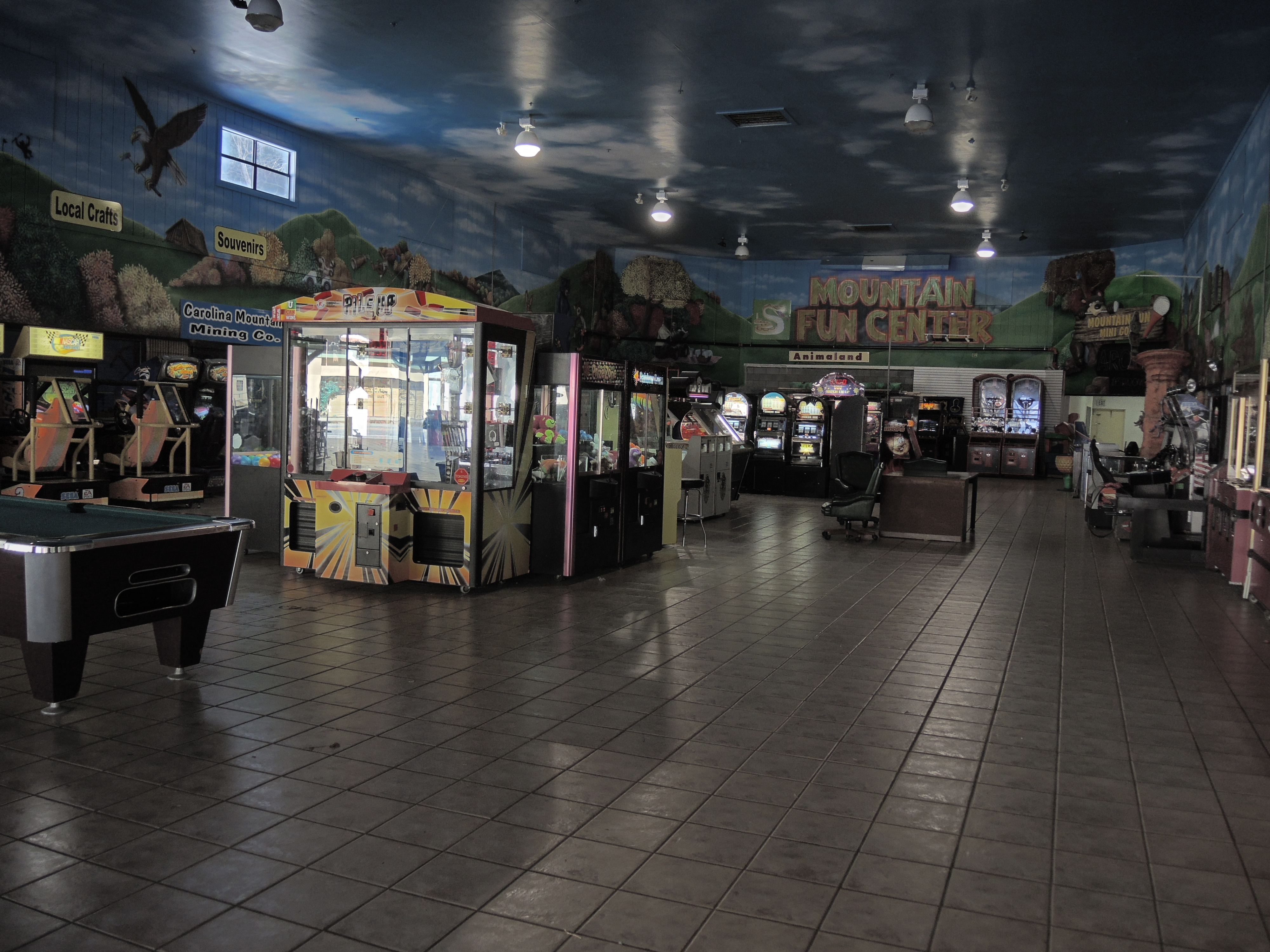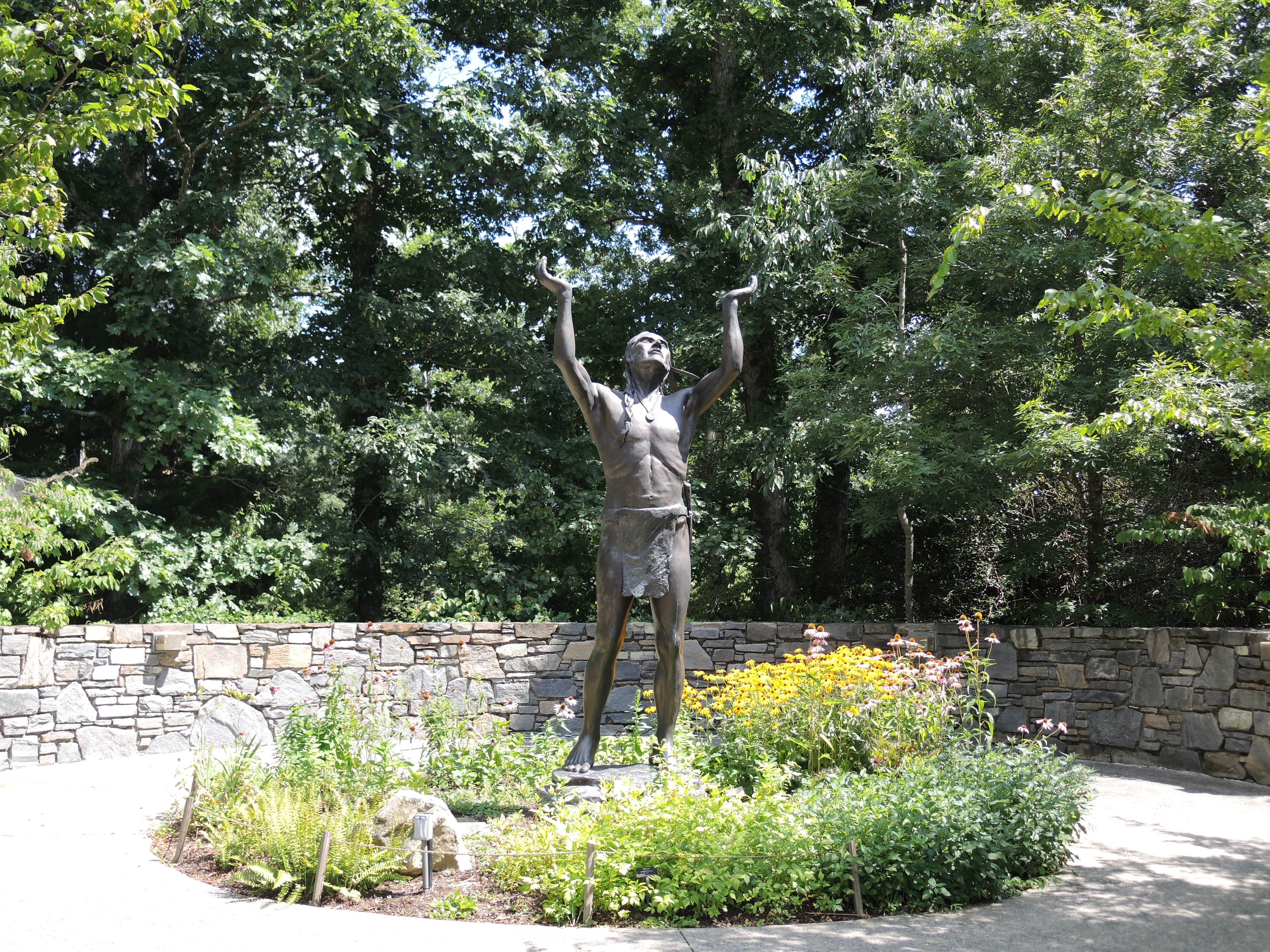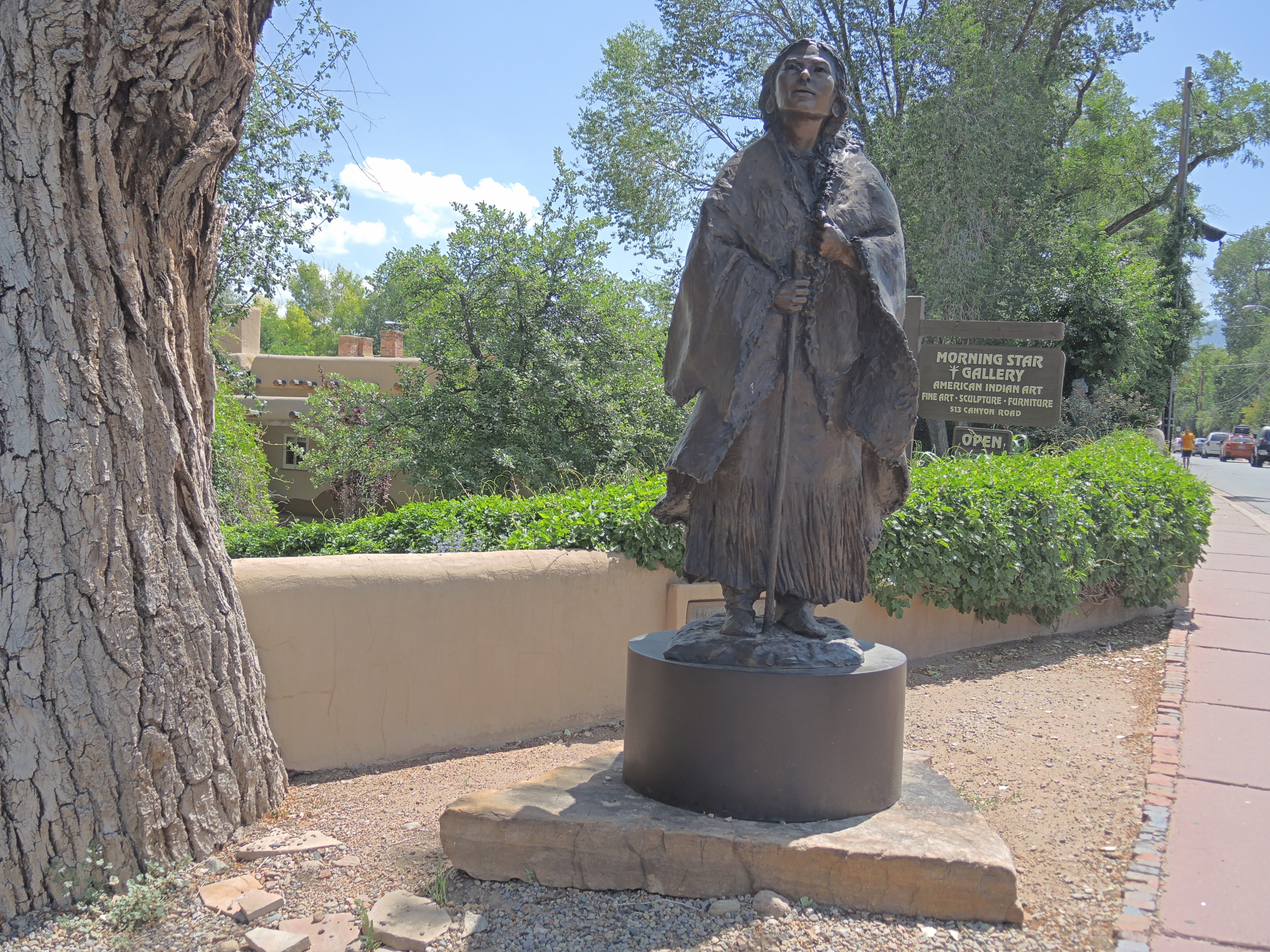One of the final factors that convinced me to make the move to Asheville was the close proximity of the Cherokee Reservation. I’ve long been interested in Native American culture and thought living close to a reservation could be one way to learn more. It’s a wonder that my first trip to Cherokee came five months after my relocation.
I’d been planning to drive out to Cherokee for weeks, but something would always get in the way– poor weather, the holidays, events at work, unexpected plans. When I woke up one Sunday recently with nothing planned and clear, cool weather in the forecast I decided that it was finally time to make the drive.
I don’t know what exactly I expected to find– I’ve never been on a reservation before– but I do know that what I witnessed was nothing I would have anticipated.
The drive from Asheville to Cherokee was mysterious enough on its own. I passed through another town that prided itself in hardly changing since the days of pioneers. Wooden structures lined the roads and the silhouette of a bonnet-wearing pioneer woman adorned every sign. The streets were empty.
At the town limit I passed a sign announcing I was entering the Cherokee Reservation– a regular sign like any other you’d find when crossing from one state into the next. The road wound around uphill, bare trees to one side, a significant drop to the other. I felt my ears pop and cloud and my stomach turned with the familiar feeling of altitude and motion sickness combined.
After miles climbing up and back down the mountain along the winding road I entered the town, bordered immediately by the city’s main attraction– a high-rise casino. Cars snaked in and out of the lot and spilled into the gas station across the street.
Down the road I passed a giant amusement park named Santa Land which, ironically, was closed for the season and set to reopen in May.
I continued on, driving past the downtown area, following the river that cuts through the town. I drove on down deserted streets for miles, past quiet, run down houses, seeing only a single man smoking a cigarette in his back yard. I turned reluctantly back toward downtown and pulled in by a restaurant whose sign boasted the best sandwiches in town.
As soon as I got out of my car I felt it– a silent, grim grip in the air. A heaviness that hung over the reservation like death. The only thing that felt alive in the town was the river, crashing steadily along over rocks.
After a closer look I saw the restaurant I’d parked in front of and the shops that bordered it were all closed. I couldn’t tell whether they were closed because it was Sunday or winter or if they’d gone out of business. The windows were dark, the walkways empty.
I walked on in a daze, unsure of my surroundings, and came to an open space arcade that I’m positive I once dreamed of as a little girl. The arcade in my dreams though was bustling with sounds and activity. This one was completely deserted.
 A row of crane machines lined one wall of the arcade. A handful of toys sat sadly spread out along the base of the machines, an easy win for anyone with a quarter to spare. Game machines buzzed and blinked along the other side. I walked uncertain down the center row feeling as if I were on a set for a horror movie. Where were all the people? Why was this place so deserted?
A row of crane machines lined one wall of the arcade. A handful of toys sat sadly spread out along the base of the machines, an easy win for anyone with a quarter to spare. Game machines buzzed and blinked along the other side. I walked uncertain down the center row feeling as if I were on a set for a horror movie. Where were all the people? Why was this place so deserted?
I left the arcade, returned to my car, and drove into the main downtown strip. Rows of stores lined both sides of the main street, dream catchers swung in the breeze along the porches. I walked up and down each side, staring in disbelief into the shops. The shelves of the stores were filled with imitation “Indian” items– dream catchers, dolls, moccasins, feathers, tools, t-shirts– most of the items made in China, none of them authentic. Confederate flags hung proudly in many windows.
Back in my car, resigned to returning home, I passed the Qualla Arts and Crafts Center and decided to give it a chance. I felt refreshed to find authentic, hand-made Native American crafts for sale inside. I brought a small bundle of sweet grass to the front mainly for an excuse to talk to the two women working the register– the only people I’d seen in the town who looked like they were from Cherokee originally.
I tried to talk to them about the reservation, surely I had missed something important. The sad shops along the main street, the deserted arcade, and Santa Land couldn’t be all that it offered. I asked what there was to see or do, offered that I preferred non-tourist attractions. The women responded resigned, guarded that the casino and museum were all there was in winter, but if I returned in the summer I could visit the amusement park or go horse back riding.
I left without visiting the museum, too disheartened to spend any more time in the town.
As I drove back along the long, winding road I couldn’t help but feel sorrow, shame at what I’d witnessed. What have we done? What are we doing to a culture, a people who lived on the land long before the “first settlers” came over to call it home? I hope that what I saw was not the real Cherokee and that somewhere beyond the main street, far from the tourists and gamblers there lives a thriving community, a culture that is celebrated and honored.



Carmela,
You have witnessed what I’ve experienced many years ago in my youth. Before my first hand experience years ago there were many that witnessed and experienced many years before me in their youth way before I was even born. To me some wrong doings never change with time the American Indians have always deserved to either protest or complain about being discriminated against more than any other Race or whatever type of Foreign US Citizens. After all think about it the American Indian is the Only Original as well as the only true American. They have since I was a young child and even before been shown in Movies as the Evil Race what a Shame! These days they are used for Casino’s receiving far less revenue than what they should be receiving from the owners of the Casino’s. It’s like the Second Coming of taking their Land Again. I for one will Forever See The American Indian As The Proudest People In America.